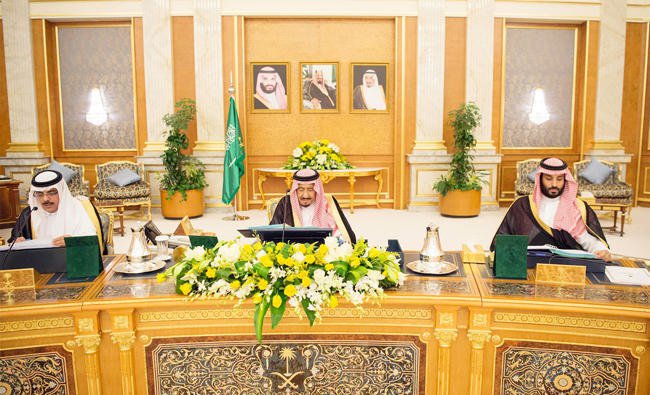
Cabinet approves atomic energy project
The Cabinet on Monday approved the establishment of a “national project for atomic energy” in the Kingdom.
King Salman chaired the Cabinet session at Al-Salam Palace in Jeddah, which lauded the issuance of royal decrees aimed at improving the performance of various state bodies.
The Cabinet said the orders would ensure the provision of the highest level of services to citizens, residents and visitors to the Two Holy Mosques.
Referring to the record number of Umrah pilgrims this year, the Cabinet said the number of Umrah visas issued exceeded 6.75 million.
The Cabinet lauded the security services in tracking down terrorists and thwarting their plans, with particular reference to the killing of three wanted persons in Saihat, Qatif province, who were involved in terror and criminal activities. The Cabinet said the security forces are able to deter anyone seeking to harm the Kingdom.
It commended the International Monetary Fund (IMF) report on the Kingdom’s progress in implementing Vision 2030, which the IMF called a “bold reforms” program.
The Cabinet renewed the Kingdom’s full support for Kuwaiti measures to reduce the Iranian diplomatic mission following the discovery of a terrorist cell in Kuwait and Iran’s involvement in helping cell members.
The Cabinet reaffirmed Saudi condemnation of Israel’s closure of Al-Aqsa Mosque, and called on the international community to shoulder its responsibility toward Israel’s continued aggression against the Palestinian people.
The Cabinet approved a memorandum of understanding (MoU) for cooperation in the area of antiquities, museums and urban heritage between the Saudi Commission for Tourism and National Heritage (SCTH) and Egypt’s Ministry of Antiquities.
An MoU on political consultations between the Saudi Foreign Ministry and its South Korean counterpart was also approved.
The Cabinet approved an MoU on scientific and educational cooperation between the Saudi and Bosnian governments.



























